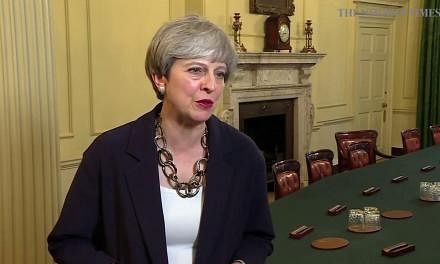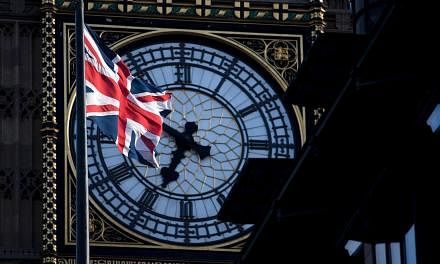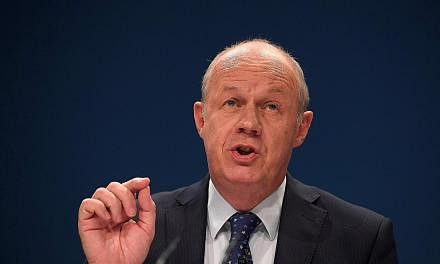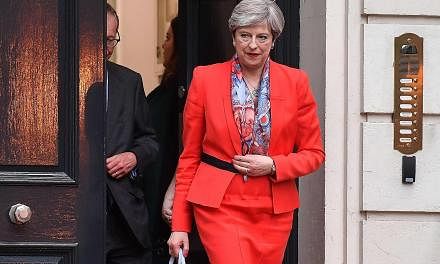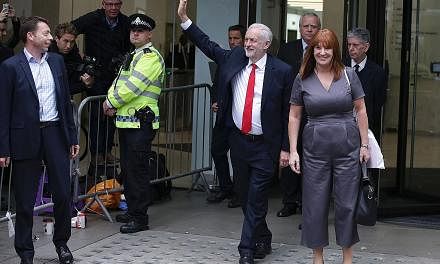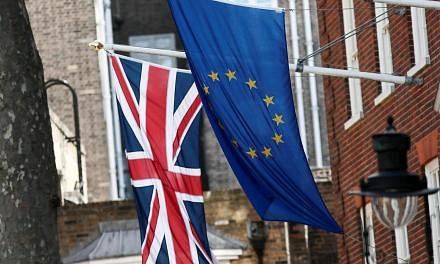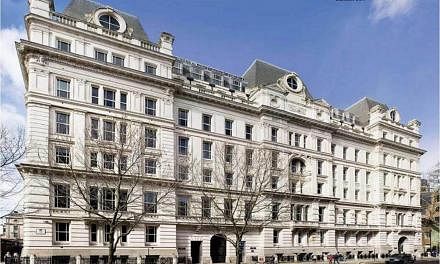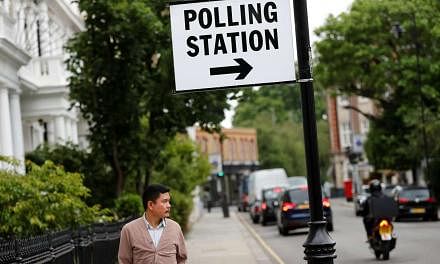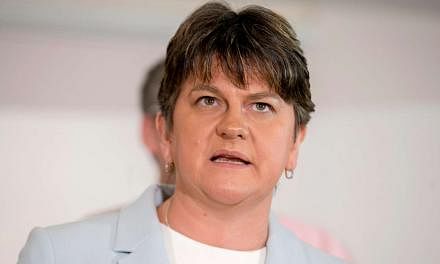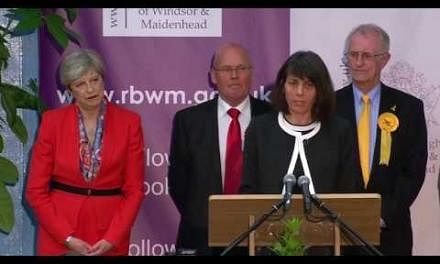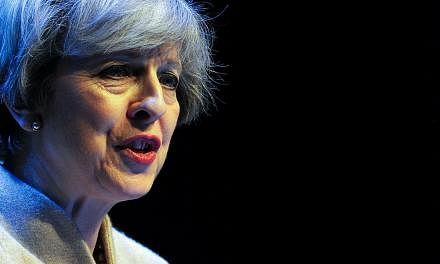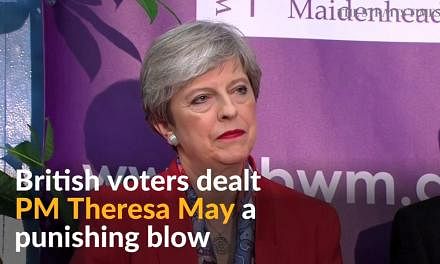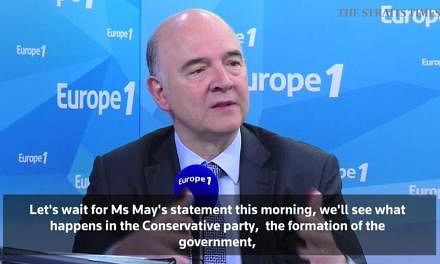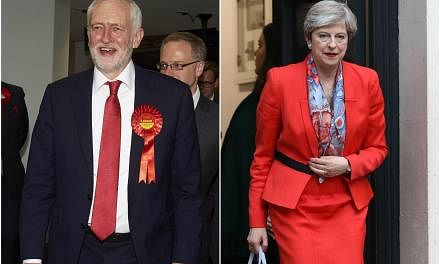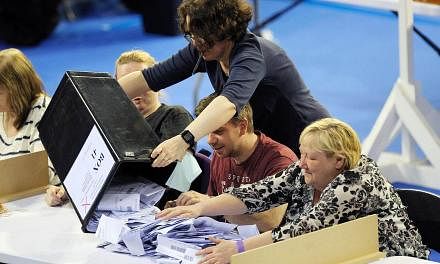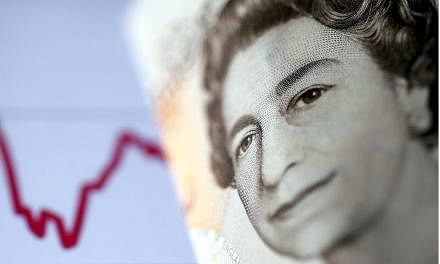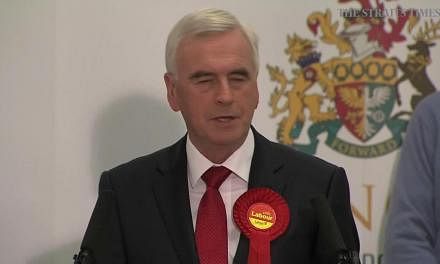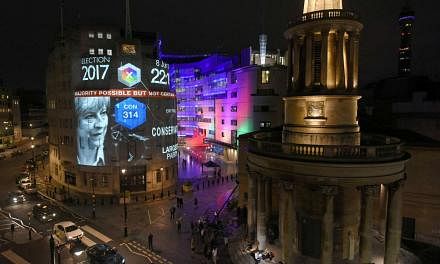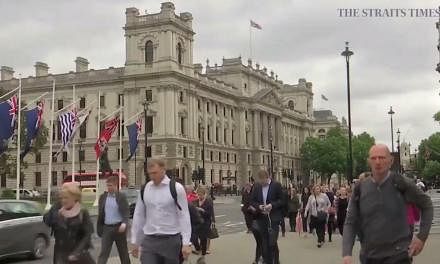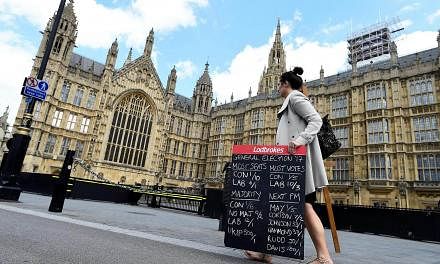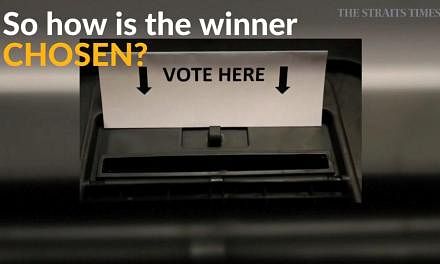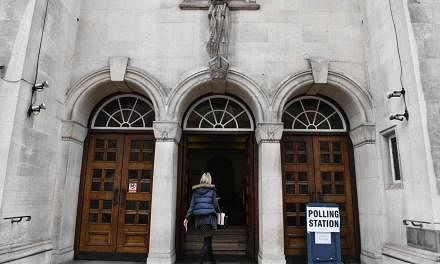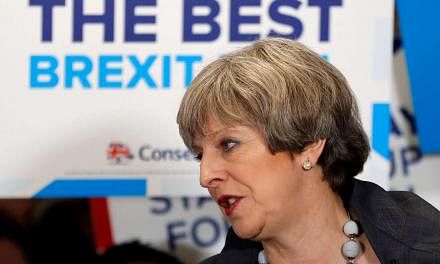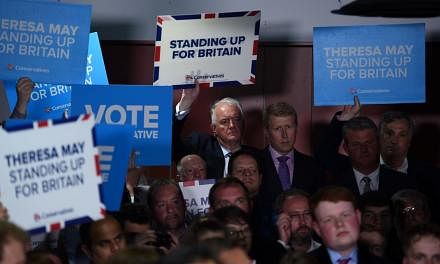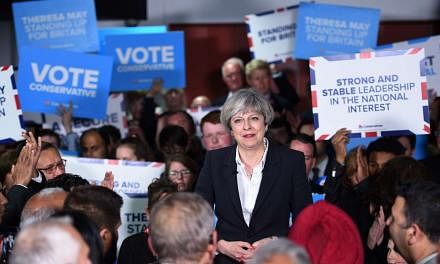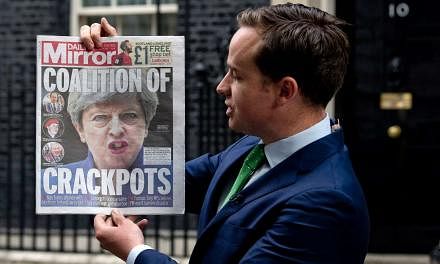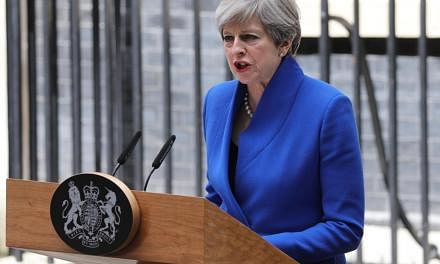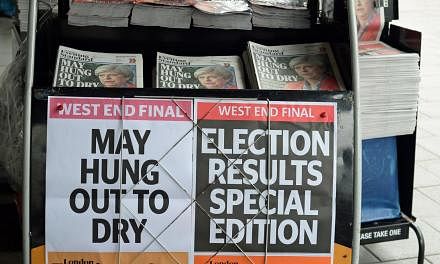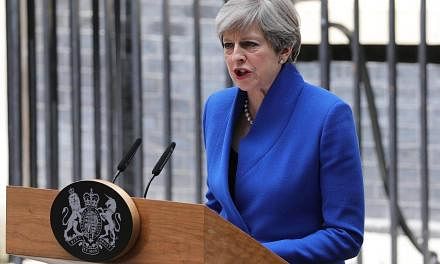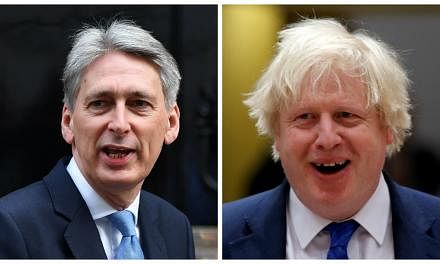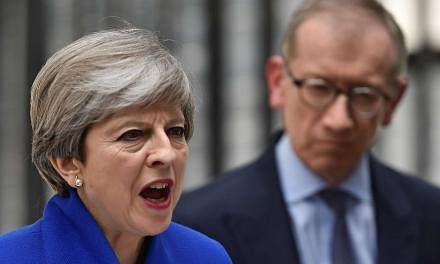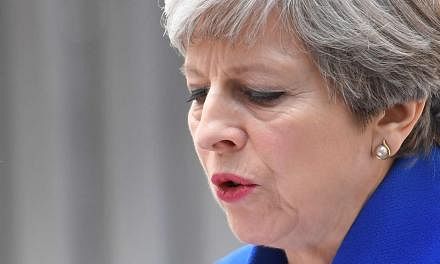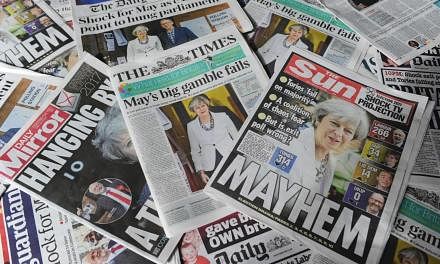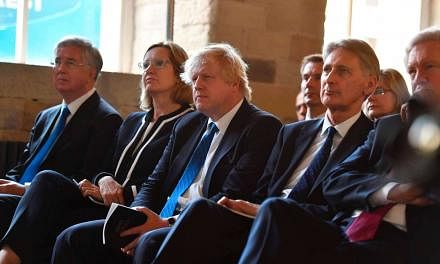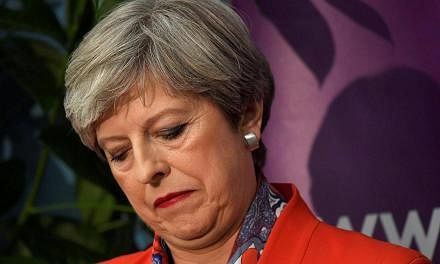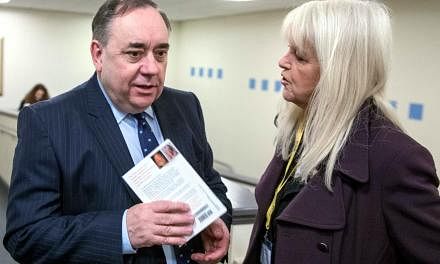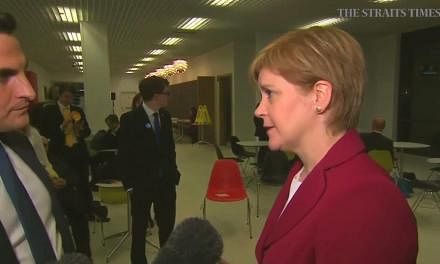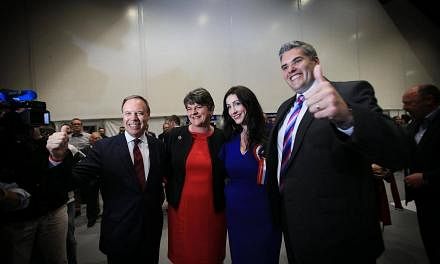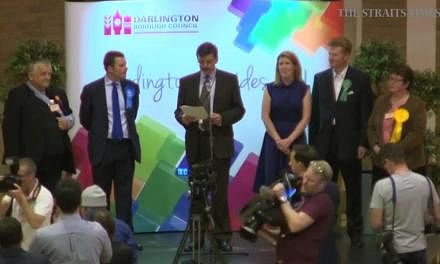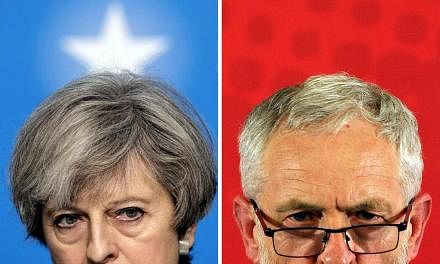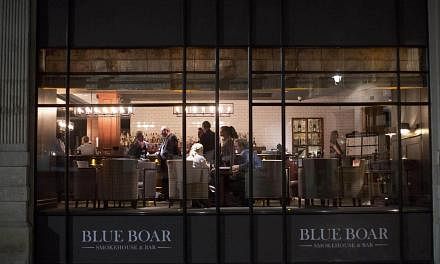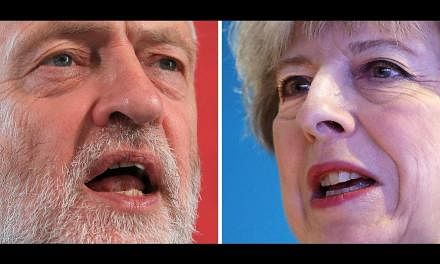LONDON - Marred by two terror attacks during the campaign, Britain's general election is set to go ahead on Thursday (June 8).
Voters in the United Kingdom - England, Scotland, Wales and Northern Ireland - will choose the entire national Parliament - all 650 seats - and that will decide who shapes Britain's future as it leaves the European Union (EU).
Conservative Prime Minister Theresa May, who came to power without a national vote last year after Mr David Cameron's resignation, called the election three years early after just one year in charge.
Why is the election important?
The vote will determine who gets to negotiate Britain's departure from the EU over the next two years, and the strength of mandate that the government will have in parliament for five years.
Britain's new leader will also have to deal with the aftermath of a terror rampage in a nightlife hub in London on Saturday night, the third Islamist attack in the country in less than three months.
Britain takes a leading role in global anti-terror efforts and is a key member of the US-led coalition bombing Islamist State in Iraq and Syria (ISIS) group positions in Iraq and Syria.
It holds veto power at the United Nations, where it is one of the five permanent members of the Security Council along with China, France, Russia and the United States.
Who is leading?
Although surveys show the gap between the main two political parties has narrowed considerably, May's position as prime minister seems secure.
However, the Conservatives' advantage has eroded over the campaign, with pollster YouGov even suggesting on May 30 that the party could fall short of a majority, meaning they would need the support of another party to govern.
But in its latest estimations published on Wednesday, YouGov put the Conservatives seven points ahead of its long-time rival. ICM put the Conservatives a comfortable 12 points ahead of Labour, a vast difference to a Monday poll by Survation which forecast a gap of just one point.
What are the issues at stake?
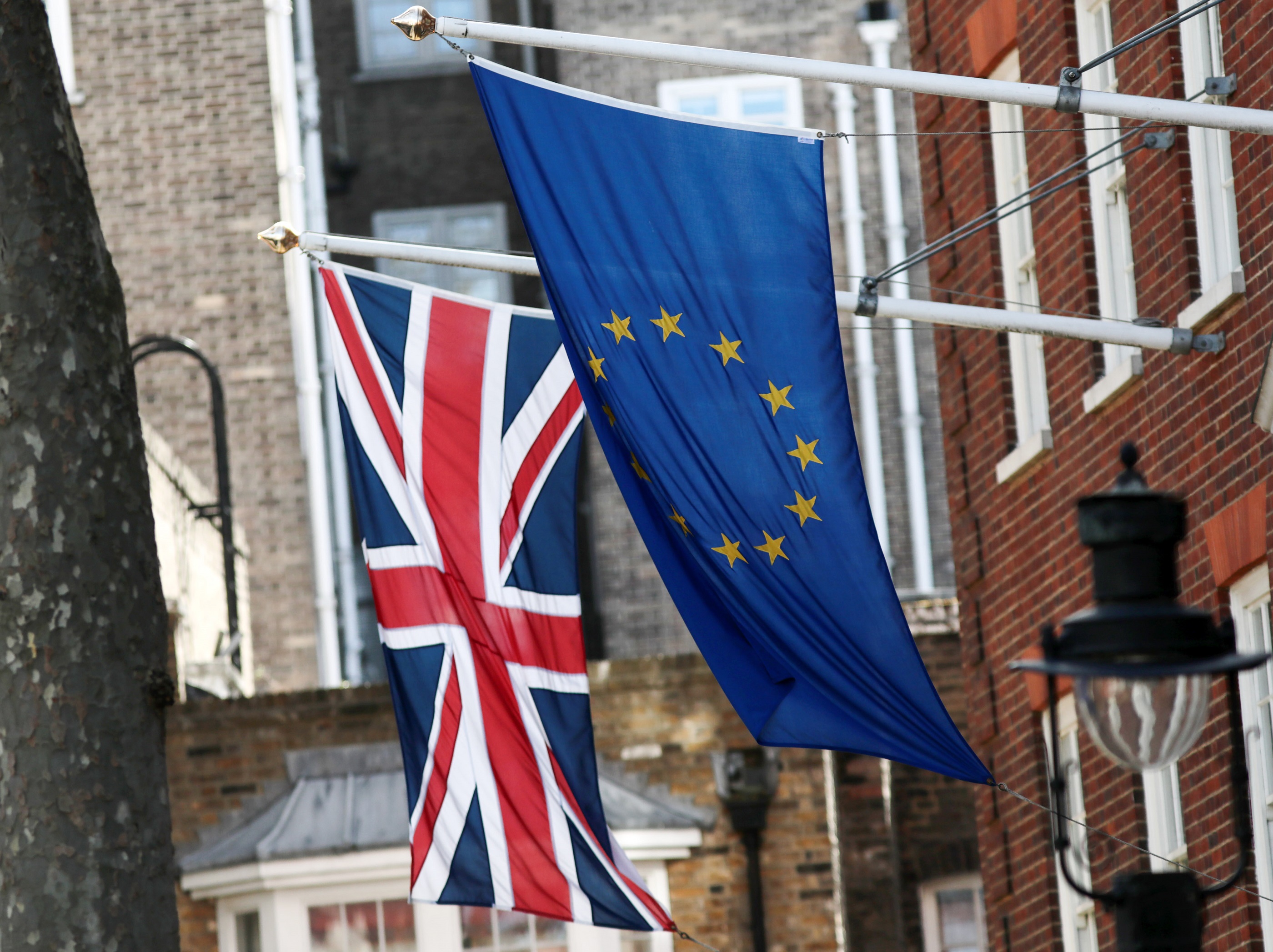
The vote will determine who gets to negotiate Britain's departure from the EU over the next two years, and the strength of the mandate that the government will have in Parliament for five years.
Immigration is one of the main issues on the campaign trail.
The Conservative government wants to reduce net migration - which is the difference between people entering the UK and people leaving - to tens of thousands a year, instead of the current figure of over 240,000 annually.
Labour says it will not make migrants "scapegoats", but they have to survive without falling back on public money. It also says it will not count international students in the main immigration numbers.
Britain's new leader will also have to deal with the growing number of terror strikes. The rampage in a night-life hub in London on Saturday night was the third such attack in the country in less than three months.
Britain takes a leading role in global anti-terror efforts and is a key member of the US-led coalition bombing Islamic State in Iraq and Syria (ISIS) group positions.
Other key issues include the state-run National Health Service and the economy, according to polls.
How does the election work?
There are 650 constituencies across the UK, meaning 326 MPs are needed for an absolute majority in parliament's lower House of Commons.
May had a slim working majority of 17 at the dissolution of the last parliament and called the election in a bid to strengthen her position going into the Brexit talks.
Each constituency is won on a first-past-the-post basis, meaning the candidate with the most votes in that seat becomes its MP. Despite the focus on the party leaders, voters are not directly choosing their prime minister, only their local MP.
A parliament is elected for a maximum of five years, meaning the next general election must be held by June 2022 at the latest.
Voting
The polls are open from 7am (2pm Singapore time) until 10pm (5am Friday Singapore time) on June 8.
There are around 47 million registered voters. British, Irish and Commonwealth residents aged 18 and over can vote, plus British citizens living abroad who have been registered to vote in the UK within the last 15 years.
Citizens must register to vote and voting is not compulsory.
What are the options?

The main parties across the whole of Britain are the Conservatives (centre-right), led by Mrs May, and Labour (left), led by Mr Jeremy Corbyn, followed by the Liberal Democrats (centre-left), the UK Independence Party (populist) and the Greens (left).
The Scottish Nationalists (left), Welsh nationalists Plaid Cymru (left) and four parties from Northern Ireland also won seats at the last general election in 2015.
Polls suggest the Conservatives are on course for victory. However, Labour might be able to form a government with backing from smaller left-wing parties.
This time, 3,303 candidates are standing. A £500 (S$891) deposit is required to stand, which is refunded if candidates get at least 5 per cent of the votes cast.
What's next?
The vote-counting begins immediately after the polls close and by dawn on June 9 (around Friday noon Singapore time), the results are expected to be out.
As soon as possible, the head of state, Queen Elizabeth II, asks the person most likely to command the confidence of the Commons to become prime minister and form an administration.
Parliament meets on June 13 to elect a new speaker and swear in MPs.
The state opening of Parliament by the Queen takes place on June 19, when she will read out her government's programme for the coming parliamentary year.
The Brexit negotiations are also due to start in the week beginning on June 19.
Sources: AFP, BBC

